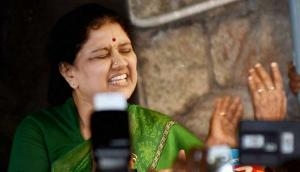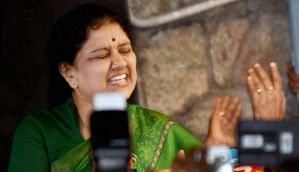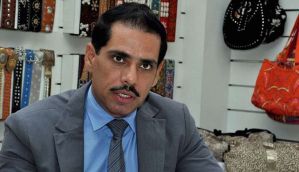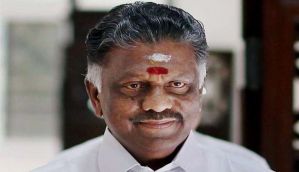All-woman police team to investigate Murthal incident
Even though the Haryana government has constituted a three-member team of women police to investigate the alleged 22 February incident of mass rape along the National Highway in Murthal, the state police said on Friday that they have found no concrete evidence that any such incident took place, reports The Economic Times.
"Already two senior officers of the state government, including a principal secretary and an inspector general of police, visited the spot of the incident and nearby areas, but no evidence of the occurrence could be found," said director general of police YP Singal.
Pathankot: Pak may ask Doval for statement
Pakistani investigators in the Pathankot case may ask Indian national security adviser (NSA) Ajit Doval for a statement, reports the Hindustan Times.
This is because the FIR filed by Pakistan in the case is based on information provided by Doval.
"The FIR said it was being lodged on the basis of information provided by India's NSA that four attackers crossed from Pakistan to India to attack the Pathankot air base on January 2, which makes Doval a complainant in the case and a potential prime witness," said a senior government official.
Admiral Ramdas to attend JNU meeting
The JNU Students Union will host a public meeting today with former navy chief Admiral Laxminarayan Ramdas, on the topic 'Demilitarising Nationalism: anti-war perspectives on patriotism', reports The Telegraph.
"The ABVP has been firing at JNU from the shoulders of retired soldiers. The veterans and others we've called tomorrow will give us a more rational narrative of patriotism," said Shehla Rashid, vice president of the JNU Students' Union.
The meeting was called after the JNU administration met ex-servicemen to discuss the instilling of patriotism among students by placing war memorabilia, including a battle tank, on campus.
IPC of 1860 needs to be brought up to date: Pranab
President Pranab Mukherjee said on Friday that the Indian Penal Code, put in place by the British in colonial India in 1860, needs a thorough revision so as to meet the needs of the 21st century, reports The Economic Times.
"The IPC has undergone very few changes in the last 155 years," said the President at a function marking the 155th anniversary of the IPC. "Even now, there are offences in the Code which were enacted by the British to meet their colonial needs. Yet, there are many new offences which have to be properly defined and incorporated in the Code."
Cases against JNU students shifted to anti-terror cell
The cases against three JNU students charged with sedition after allegedly shouting anti-national slogans on campus on 9 February have been transferred to the Delhi Police Special Cell that investigates terrorism cases, reports The Indian Express.
The cases were transferred on the day that the three students were questioned together.
A senior police officer said: "Joint questioning of the three persons was done by the Special Cell. And the report mentions that the accused are not cooperating with the investigation. There is involvement of people from other states as well in the whole incident."
Ishrat encounter result of intelligence entrapment operation: Pillai
Key figures from the UPA government's security establishment could be questioned in regard to the revelation by former union home secretary GK Pillai that the June 2004 killing of Ishrat Jahan and three alleged Lashkar-e-Taiba terrorists in Gujarat was the result of an intelligence entrapment operation, reports The Indian Express.
In an interview to Times Now on Friday, Pillai said: "It was a very successful intelligence operation. we managed to entice the LeT to send their shooters to India and were able to monitor their activities in India and to, in one sense, catch them. It was a very planned operation..."
Supreme Court to hear PIL that aims to bifurcate its powers
The Supreme Court will hear a PIL on March 16 that asks to set up a national court of appeal above the high courts, so that the apex court can deal exclusively with constitutional matters, reports the Hindustan Times.
The PIL filed by Puducherry-based advocated Vasanta Kumar suggests that this new national court of appeal have regional benches at Delhi, Chennai, Mumbai and Kolkata, and should be the last court for appeals with undisputable decisions unless questions of law remain unanswered.
This is because the Supreme Court has more than 60,000 cases pending due to appeals based on cases in the high courts.
Sam Pepper quits Twitter, makes YouTube content private
Sam Pepper, a former Big Brother contestant who specialises in comic monologues and hidden-camera pranks has quit Twitter. Pepper currently has over 2.3 million subscribers to his YouTube channel and over 200 million views.
The controversial YouTube vlogger and prankster Sam Pepper has made his video content private and deleted all but one tweet. He has given no explanation for his decision with the exception of a single remaining tweet saying: "i give up".
Pepper from Folkestone, Kent, gained notoriety (and millions of followers) after posting a video in which he tricked a fellow vlogger into thinking a mutual friend had been kidnapped and executed.
As a result, a petition calling for his removal from YouTube received 200,000 signatures.
Vienna is the world's best city to live in
If you manage not to burp loudly and land yourself in trouble in Vienna, it may be the best city in the world to live. According to a new study, Vienna is the world's best city to live in; Baghdad is the worst, and London, Paris and New York do not even make it into the top 35, according to international research into quality of life.
German-speaking cities dominate the rankings in the 18th Mercer Quality of Lifestudy, with Vienna joined by Zurich, Munich, Düsseldorf and Frankfurt in the top seven.
Paris has tumbled down the league, falling 10 places to 37th, just ahead of London at 39th, almost entirely because of the city's vulnerability to terrorist attacks. The study examined social and economic conditions, health, education, housing and the environment, and is used by big companies to assess where they should locate and how much they should pay staff, a report in the Guardian said.
Kebab lands man in trouble. Vienna police slaps 70 euro fine
Edin Mehic has been fined for offending public decency. He burped loudly in public after eating a kebab. Mehic was fined €70 ($77) for belching while standing close to a policeman in the city's famous Prater Park.
Writing on Facebook, Mehic said he burped after eating a kebab with too much onion. Moments later, he wrote, "I felt a hand on my shoulder". "But what had I done?... I was being reported for a 'decency violation', the policeman shouted. "I had a long discussion with him about why he wasn't picking up real criminals who were obviously consuming and selling completely legal drugs. That didn't get us very far."
Mehic posted a photograph of the fine on his Facebook page, which says that he violated "public decency with a loud belch next to a police officer." Police spokesman Roman Hahslinger on Monday confirmed that Mehic had been fined for the offending burp, a report in the Guardian said.
US government bans imports made from slave and child-labour
The United States has finally closed a legal loophole that allowed importing goods made using slave or child labour. While a 1930 law, the Tariff Act, bans the import of such goods, it had a provision for allowing goods that the US did not produce enough to meet its demand. As a result, the law was rarely used. On Wednesday, President Barack Obama signed the Trade Facilitation and Trade Enforcement Act that eliminated the provision. The banned goods include carpets from India, reports ABC News, besides peanuts from Turkey and gold from Ghana.







![BJP's Kapil Mishra recreates Shankar Mahadevan’s ‘Breathless’ song to highlight Delhi pollution [WATCH] BJP's Kapil Mishra recreates Shankar Mahadevan’s ‘Breathless’ song to highlight Delhi pollution [WATCH]](https://images.catchnews.com/upload/2022/11/03/kapil-mishra_240884_300x172.png)

![Anupam Kher shares pictures of his toned body on 67th birthday [MUST SEE] Anupam Kher shares pictures of his toned body on 67th birthday [MUST SEE]](https://images.catchnews.com/upload/2022/03/07/Anupam_kher_231145_300x172.jpg)






